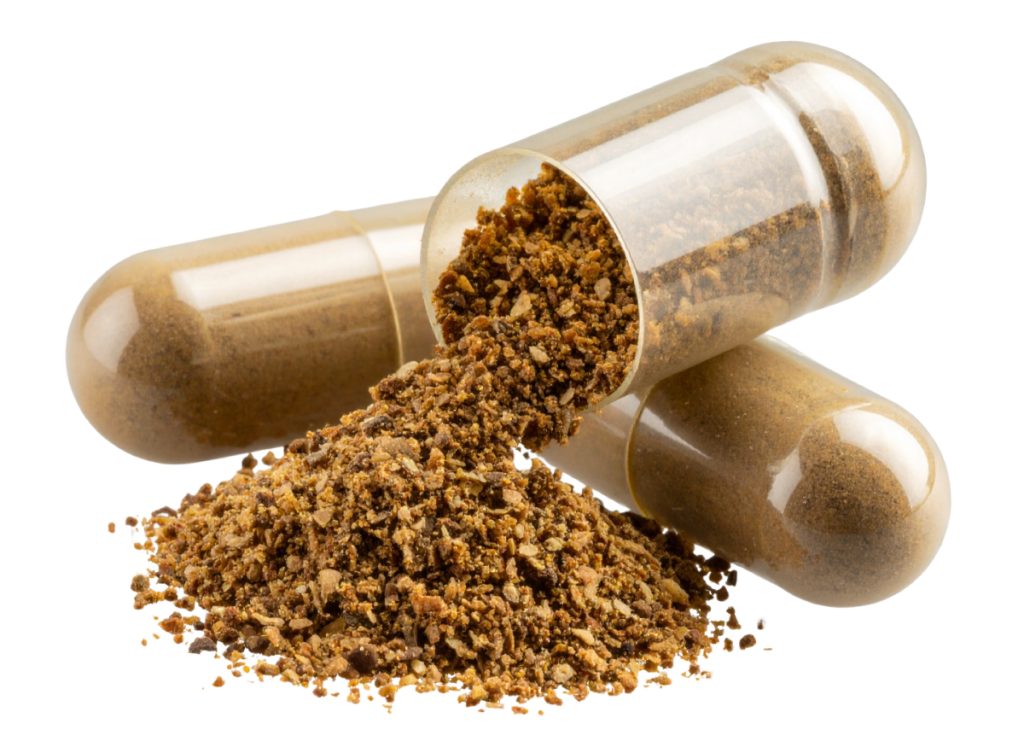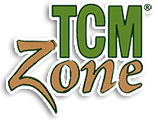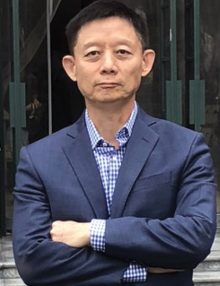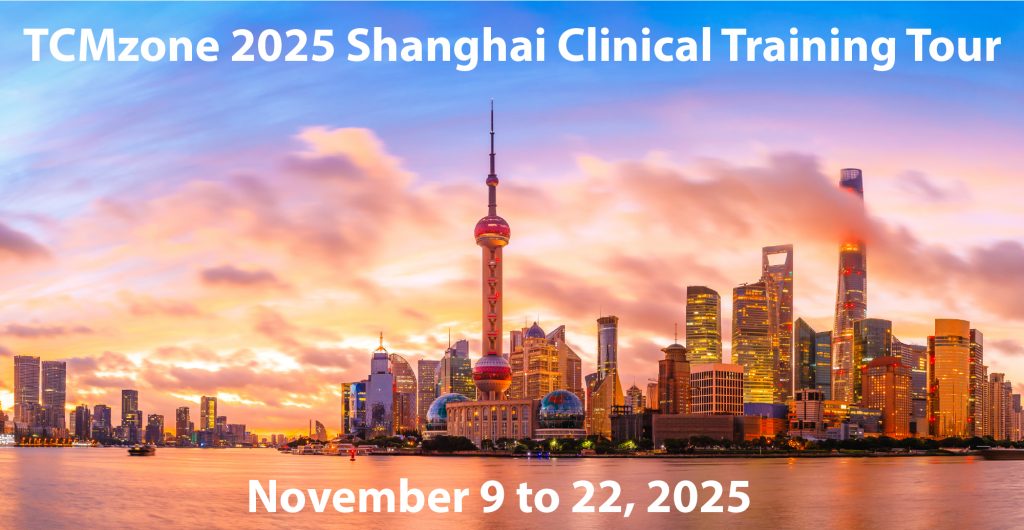Shaping the Future of Herbal Medicine: Dr. Dan Wen on Granule Herb Innovation at TCMzone

Here at TCMzone, we were able to sit down with Dr. Dan Wen the founder and CEO of TCMzone, LLC to get some insight into his background, experience and education on the history and development of granule herbal medicine. Below is my interview with Dr. Wen.
- Sherri Taylor, L.Ac.: Hi Dan, it’s nice to chat with you. I want to begin with asking how the concept of TCMzone came to fruition?
DW: After graduating with a medical degree in integrative medicine, I spent 4 years at Guangzhou TCM University as faculty focusing on gastroenterology research. This position led me to an opportunity at the Mayo clinic in Rochester, Minnesota for a 3-year research fellowship from 1992-1995 in Gastroenterology. Following that, I spent 4 years doing gastroenterology research at Washington University School of Medicine in St. Louis with a special focus on nutrition.
My first industry job was with US Nutrition, as vice president of research and development focusing on the development of nutritional supplements in Phoenix, AZ. In 2000, I partnered with Honso Pharmaceutical Co., Ltd. in Japan and helped build their subsidiary company Honso USA, Inc. also located in Phoenix, AZ. In 2008 I founded TCMzone, LLC to continuously distribute Honso Kampo products and expand the product line under TCMzone brand with full lines of granule herbs from Chinese manufacturers. Under Honso and TCMzone brands we have developed a unique system for packaging and delivery of herbal granules to the consumer.
- Can you elaborate on Japanese Kampo system under the Honso® brand?
DW: Kampo medicine evolved from the Edo Era (1600-) when classical Chinese medicine was adopted by Japanese traditional Kampo practitioners, leading to the development of standardized herbal granule formulas in the 1960’s. This development set the stage for herbal medicine to be covered by the National Health Insurance (NHI) integrating Kampo medicine into healthcare in Japan. In 1987, 148 formulas were approved as prescription drugs and covered by NHI in Japan. Kampo medicine is regulated like pharmaceuticals, and the herbal granules are pharmaceutical grade because their herbal formulas are regulated by the Ministry of Health Labour and Welfare (MHLW) and the Pharmaceuticals and Medical Devices Agency (PMDA). Kampo’s pharmaceutical market is valued at approximately 1.1 billion USD. Only licensed physicians trained in Western medicine can prescribe Kampo medicine. All medical schools in Japan have courses in Kampo medicine and 87% of physicians prescribe Kampo medicine in Japan. It is also important to note that Kampo medicine is supported by clinical research with a large body of publications. Honso Pharmaceutical Co., Ltd., is a leading Kampo manufacturer in Nagoya, Japan. Honso’s Sho-Saiko-To (H09, Xiao Chai Hu Tang) was in the clinical phase II trial for liver health at Memorial Sloan Kettering Cancer Center in New York. Honso® is the only Kampo company with US distribution of prescription Kampo medicine through our company TCMzone in Arizona, bridging the gap between Japanese traditional medicine and Western medicine clinical practices.
- As practitioners, what kinds of questions should we be asking suppliers in regards to quality control of the products we are purchasing for our patients?
DW: Japan has high standards for quality control for pharmaceutical grade medicine, so I wanted to continue that concept with all of our products from China. We require the manufacturers to test for quality markers (Q-marker) that measure the constituents in a formula as well as lead, other heavy metals, sulfur, in addition to microbial testing. As of July 2025, China has published 265 national standards for herbal granules under the National Medical Products Administration (NMPA). Standards aim to support production quality, safety with a Q marker based quality control, and batch consistency. The practitioner should ask for a Certificate of Analysis for products when they have questions with lot numbers. This Certificate of Analysis displays the exact components in each product assuring that each product is consistently produced.
- Can you take us through the process of how TCMzone sources their herbs to granule form?
DW: Granule medicine started in Japan as I mentioned earlier and was later introduced to Taiwan where it became the pioneer of standardized dosing in granule herbs. The 5:1 ratio of standardized dosing is what we use today with most of our products. The 5:1 ratio was developed for potency and safety reasons. The production of TCMzone granule herbs include raw herbs that are cut into small pieces, cooked in a water extraction tank, condensed and spray dried to form herbal extract and eventually granulated.
- What is the difference between Honso® granules and the TCMzone® brand granules?
DW: The Honso brand is a wet granulation and TCMzone brand is a dry granulation. Wet granulation is used in Japan and Taiwan and involves adding a liquid binder, then drying and sizing granules. Wet granulation may have more than one binder to form the granules while TCMzone is a dry granulation mirroring the process used in China to compress the powder into sheets then crush and size the herbal product. The main difference between wet and dry granulation is that there are few binders in the dry granulation verses the wet granulation. As a result, the dry granulation minimizes the amount of additives thereby preserving the integrity of the herbs. Honso brand has limited collection of classical formulas in granule form and packaged in a unit-dose packet. TCMzone granules are closest to their pure form mixed with just a single binder of dextrin and come with hundreds of formulas and compounding single herbs.
- How does the granule form of herbs compare to the raw form of decocting the herbal formula?
DW: Individually produced compounding granule herbs are well preserved due to the higher concentration of active constituents from the low temperature extraction. Traditional herbal decoctions enhance the therapeutic effect from the natural chemical reactions of herbs in their natural state. In 2018, a study of 51 randomized control trials with 7,035 participants found that 86.3% of the studies showed granules were as effective or better than decoctions with at least 33 health conditions.
- What are some clinical compounding strategies that you would like healthcare practitioners to know or be aware of?
DW: I think it is important for practitioners to know that the granule dosing is equal to 5 grams of raw herbs to 1 gram of granules. There are a few select herbs that we have in stock that are a 1:1 ratio, but primarily the granules are a 5:1 ratio. This makes it easy for practitioners to dose granules for their patients.
- How many product lines do you have at TCMzone?
DW: We have our TCMzone® formulas that come in 100g bottle loose granules, unit-dose packets, and vegetarian capsules. Our TCMzone® single herbs come in 100g bottle loose granules and unit-dose packets. We have added TCMCeuticals® that is a practitioner formulated line based on decades of clinical experience and we have the TCMzone® Softgel line that has a high bioavailability, that is easily absorbable.
- What is your biggest seller for herbal formulas and individual herbs?
DW: For formulas we sell a lot of Jia Wei Xiao Yao San, Bu Zhong Yi Qi Tang, Yin Qiao San, and a lot of Yuan Hu in the softgel line that is indicated for pain. Yuan Hu is especially popular in the softgel line because of its fast-acting bioavailability used for various aches and pains*. As far as the single herbs, our biggest sellers are Bai Shao, Huang Qi, Dang Gui, Dan Shen and Gan Cao.
- How does TCMzone differ from other herbal companies? What sets you apart from other companies?
DW: Our unit-dose granule packets are unique in their packaging, offering air sealed packets for freshness to prevent clogging and spoiling. The packets travel easily and offer high compliance among patients. Our single herb packets have all of these qualities but also make it easy for practitioners to customize formulas using the single herbs. Our product has quantitative measure markers that measure our herbs for quality, consistency, purity, and safety. We are a trusted brand among Pacific College, Memorial Sloan Kettering Cancer Center and other healthcare institutions such as hospitals and among practitioners of integrative medicine.
- Is there anything else you would like to say that you would like people to know about TCMzone?
DW: Yes, I would like to mention, in addition to being an herbal supplier, we do carry acupuncture needles for acupuncturists and provide education for practitioners at different levels ranging from CEU webinars, and a special wisdom series with advanced practitioners in their field as well as offering an advanced hospital training in Shanghai, China. Our first Shanghai clinical training since COVID will start in November 2025. It is an experience of a lifetime for practitioners, so be sure to check out our website for more information on that upcoming trip.
Sherri Taylor, L.Ac.: I know the trip to China was such a great experience for me as a practitioner to be immersed in the culture and to witness the practice of Chinese Medicine in the hospitals. I’m glad to hear that those trips are resuming, it is such a great opportunity for practitioners. Thanks so much for speaking with me today and providing us some insight into you and TCMzone.
DW: My pleasure, thank you.



